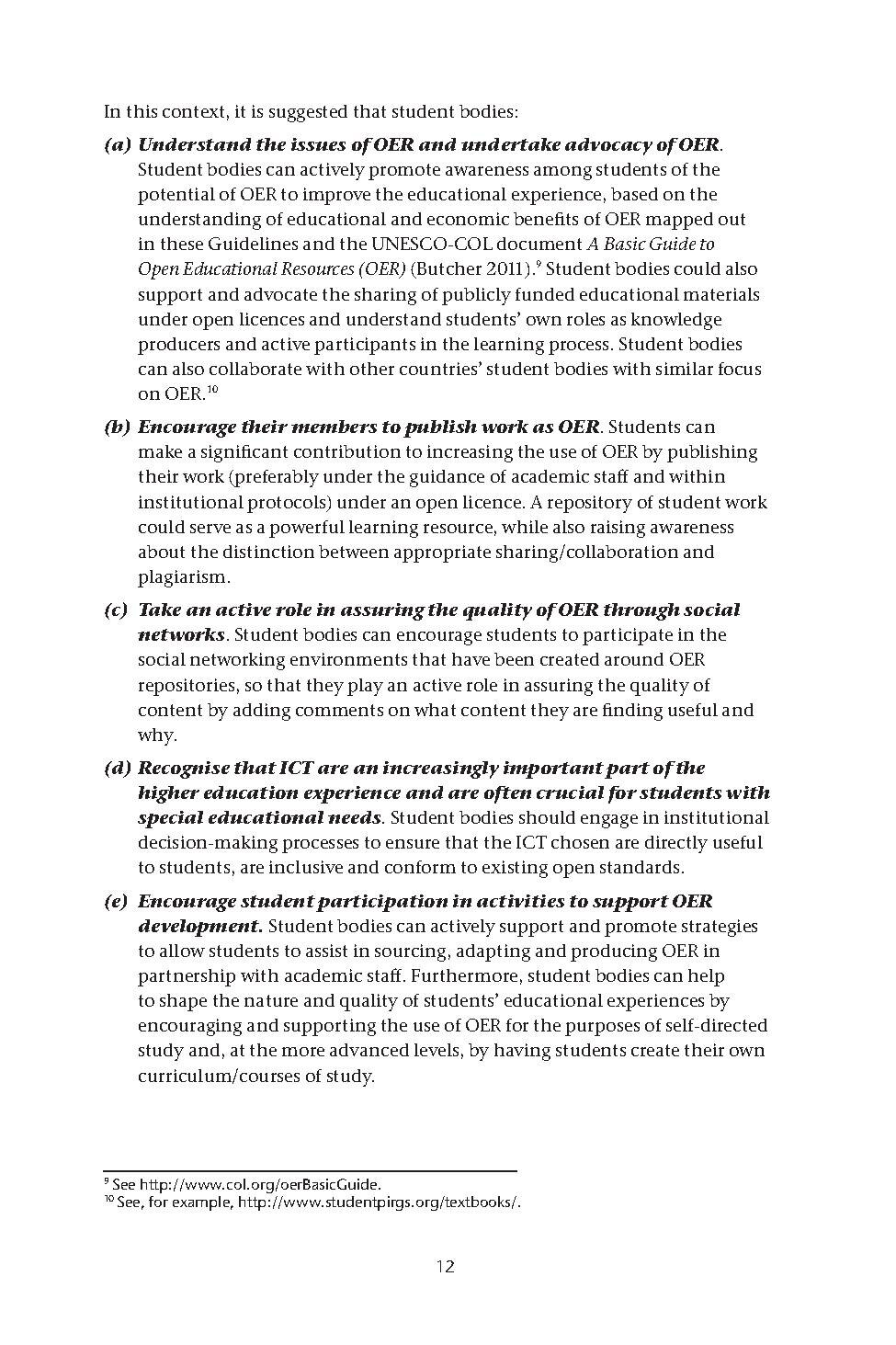This page has been validated.
In this context, it is suggested that student bodies:
- Understand the issues of OER and undertake advocacy of OER. Student bodies can actively promote awareness among students of the potential of OER to improve the educational experience, based on the understanding of educational and economic benefits of OER mapped out in these Guidelines and the UNESCO-COL document A Basic Guide to Open Educational Resources (OER) (Butcher 2011).[1] Student bodies could also support and advocate the sharing of publicly funded educational materials under open licences and understand students’ own roles as knowledge producers and active participants in the learning process. Student bodies can also collaborate with other countries’ student bodies with similar focus on OER.[2]
- Encourage their members to publish work as OER. Students can make a significant contribution to increasing the use of OER by publishing their work (preferably under the guidance of academic staff and within institutional protocols) under an open licence. A repository of student work could serve as a powerful learning resource, while also raising awareness about the distinction between appropriate sharing/collaboration and plagiarism.
- Take an active role in assuring the quality of OER through social networks. Student bodies can encourage students to participate in the social networking environments that have been created around OER repositories, so that they play an active role in assuring the quality of content by adding comments on what content they are finding useful and why.
- Recognise that ICT are an increasingly important part of the higher education experience and are often crucial for students with special educational needs. Student bodies should engage in institutional decision-making processes to ensure that the ICT chosen are directly useful to students, are inclusive and conform to existing open standards.
- Encourage student participation in activities to support OER development. Student bodies can actively support and promote strategies to allow students to assist in sourcing, adapting and producing OER in partnership with academic staff. Furthermore, student bodies can help to shape the nature and quality of students’ educational experiences by encouraging and supporting the use of OER for the purposes of self-directed study and, at the more advanced levels, by having students create their own curriculum/courses of study.
- ↑ See http://www.col.org/oerBasicGuide.
- ↑ See, for example, http://www.studentpirgs.org/textbooks/.
12
